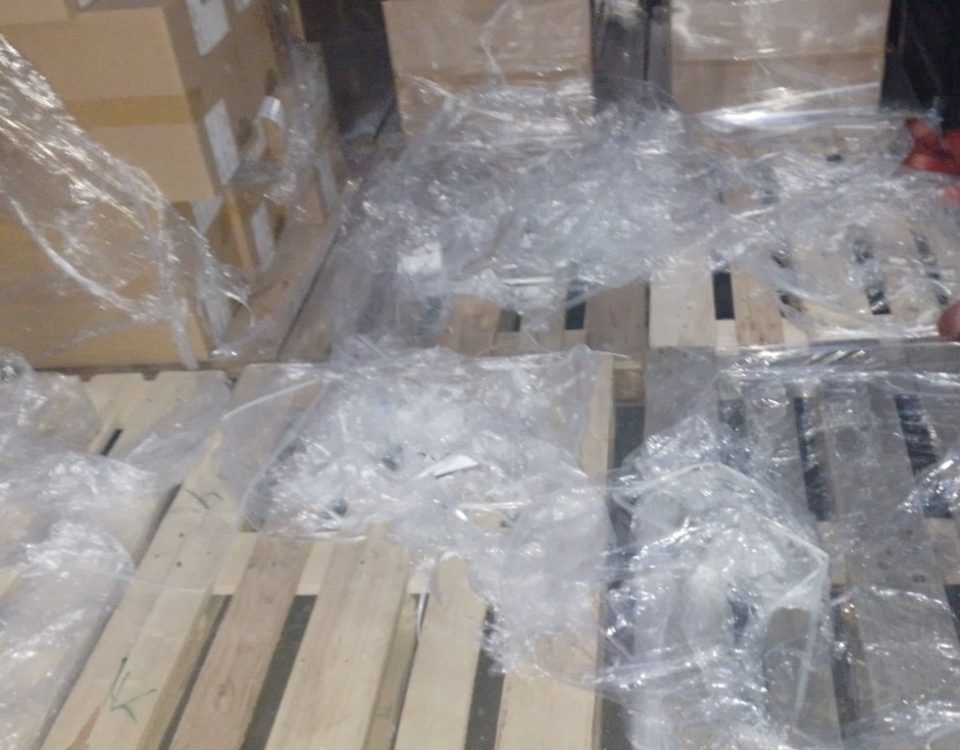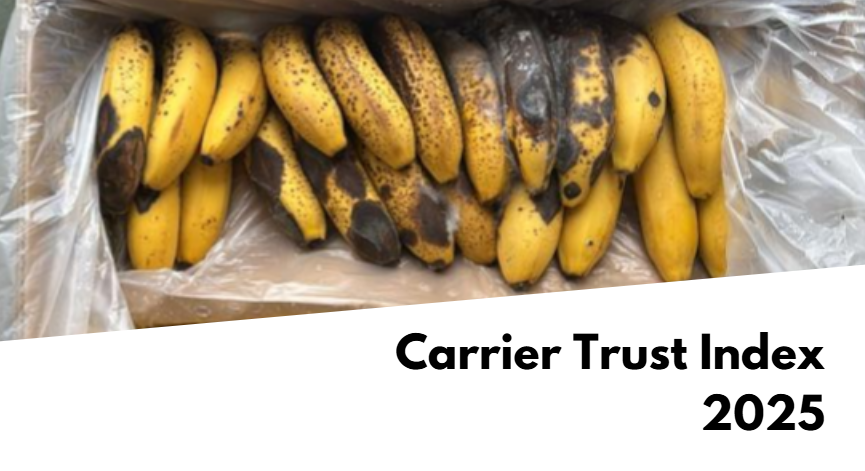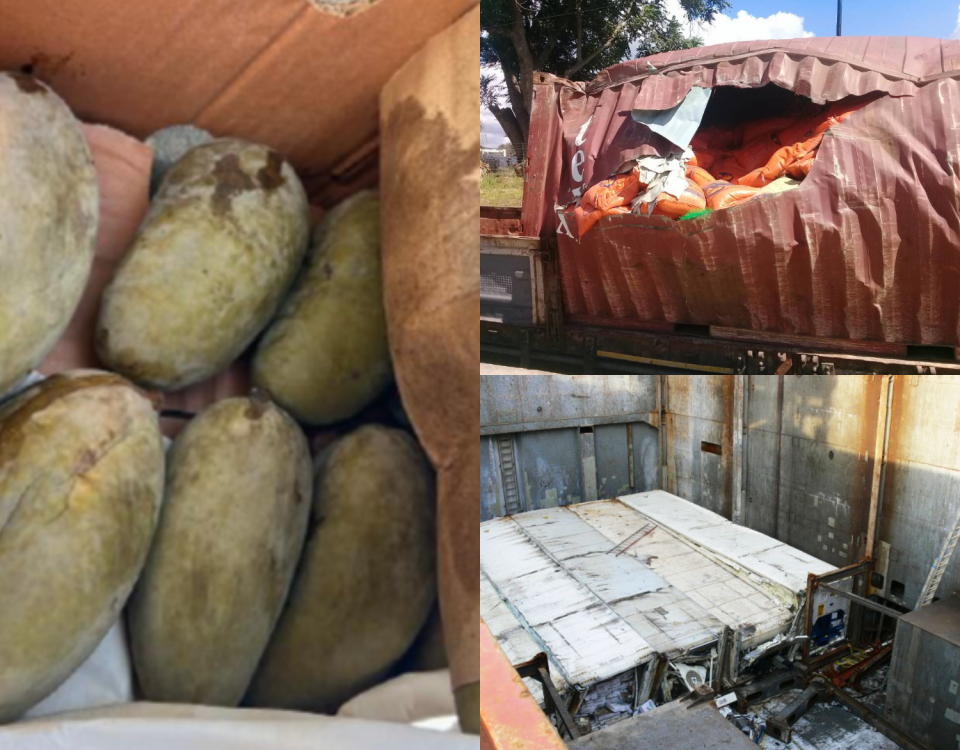Understanding Liability in Cargo Claims: Who Pays for the Damage?

Ultimate Guide to Citrus Cargo Damage
March 21, 2025
Cargo Claims in Avocado Exports — And How to Avoid Losses
April 25, 2025When cargo gets damaged, delayed, or lost in transit, the first question everyone asks is: who pays for the damage?
In global trade, cargo damage claims are complex — and so is liability. Shippers point to carriers. Carriers point to the pre-shipment quality of the cargo and packaging issues. Consignees blame delays. Freight forwarders get caught in the middle. And if no one has a clear defense, the claim becomes a costly game of finger-pointing.
At Recoupex, we help cargo interest cut through the confusion. To protect yourself, you need to understand who holds responsibility at each stage of the supply chain — and how to document your case when a claim arises. Let’s break it down.
The Shipper’s Responsibility
The shipper or the exporter — holds the first line of responsibility. If you’re the shipper, you’re expected to:
- Pack and label cargo properly
- Load the good quality cargo as per the agreed quantity with the receiver
- Gather the accurate pre-shipment documentation
If the cargo damage claim relates to poor packaging, incorrect loading, or undeclared cargo, the liability typically falls on you.
Tip: Always document your loading process. A detailed Pre-Shipment Survey Report protects you from false claims of short delivery or mishandling.
The Freight Forwarder’s Role
Freight forwarders coordinate the movement of cargo between parties — and that makes them a central player in both logistics and liability. They’re expected to:
- Select reliable carriers
- Coordinate documentation
- Ensure the agreed-upon routing and transit time
If a shipment suffers excessive transit time surpassing cargo shelf life, the importer may file a cargo damage claim — and the freight forwarder can become partially liable if they fail to book the correct service or monitor the shipment effectively.
Tip: Freight forwarders should maintain clear records of booking confirmations, communication with carriers, and any transit delays that may affect perishable cargo.
The Carrier’s Responsibility
Carriers must deliver cargo in the condition and quantity they received it — unless:
- The cargo was handed over to the carrier in the damaged condition and the same was marked on the BL
- The damage resulted from an Act of God
- The damage is due to the inherent nature of the goods
Carriers operate under limited liability, especially when governed by conventions like Hague-Visby or Hamburg Rules. They rarely cover the full cost of cargo losses.
Tip: Always check the carrier’s liability terms in the bill of lading. Don’t assume they’ll pay for the full value of damaged goods — because most won’t.
The Consignee’s Role
Consignees don’t usually bear liability unless they cause or worsen the damage — for example, by delaying cargo pickup or improperly storing it upon arrival.
However, they are typically the ones who initiate the cargo damage claim, often holding the shipper or freight forwarder responsible.
Tip: Shippers should prepare a strong paper trail — invoices, packing lists, photo evidence, and survey reports — to demonstrate that the cargo was sound and complete upon dispatch.
The Role of Marine Insurers
Marine insurers provide a financial safety net when things go wrong — but they don’t pay automatically. To receive compensation, policyholders must:
- Submit a claim within the policy’s timeframe
- Prove the extent and cause of damage
- Show efforts to mitigate losses
- Provide solid documentation (survey reports, photos, etc.)
Tip: Know your coverage terms. Understand the exclusions, limits, and deductibles. Marine insurers expect thorough documentation — without it, even valid claims can be rejected.
So… Who Actually Pays?
It depends on the root cause and who can prove what. Here’s a quick breakdown:
| Scenario | Likely Liable Party |
| Poor packaging or incorrect labeling | Shipper |
| Damage during transit | Carrier (limited liability) |
| Improper storage or delayed pickup | Consignee |
| Spoilage from natural causes | No party (Act of God) |
| Covered loss with valid insurance | Marine Insurer |
Final Word: Protect Yourself with Proof
In cargo damage claims, proof decides who pays. The party who documents their process best — not necessarily the one who made the mistake — usually avoids liability.
But here’s a critical detail most traders overlook:
Whoever issues the transport document (like the bill of lading or airway bill) assumes liability for the condition and delivery of the cargo.
That means if a freight forwarder issues the transport document, they may be held liable as the contractual carrier — even if they didn’t physically move the cargo. Whether you’re a shipper or consignee, protect yourself by:
✅ Keeping clean documentation at every step
✅ Issuing a detailed Quality Survey Report
✅ Informing the carrier of the cargo damage promptly
✅ Ensuring proper cargo insurance coverage with your marine insurers
When a claim hits, don’t rely on assumptions. Liability follows paperwork — and the most prepared party wins.
Need help recovering a cargo damage claim? Let Recoupex take the lead. We recover your losses — so you don’t have to.



